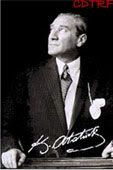Pupils + internet = nightmare for Sir
I first heard about the website during a maths lesson with my Year 10s. While I was trying to teach about the beauty of quadratic equations, it was clear that the roomful of adolescents in front of me had other things on their mind.
The topic of their whispered conversations was the website http://www.telegraph.co.uk/education/exit.jhtml?exit=http://www.ratemyteachers.co.uk, and even the conscientious students had downed tools to find out more. On my return to the staff room, it immediately became clear that I was not the only one to have been told about the site that Monday morning. Conversations about Year 8 reports and the latest episode of Lost had been replaced by talk of internet law.
A group of teachers was already huddled around our archaic computer trying to log on as fast as the school network would allow. I decided to wait until I was home to take a look, and my eyes couldn't quite believe what they were seeing.
The website, which began life in America last year, provides a database of schools across the UK. Once you have located yours, a click of the mouse brings up a list of everyone currently teaching at the school. First names and each teacher's subject area are also given.
Next to each name is an average rating out of five and a face to reflect the score, ranging from a yellow smiley one complete with a cool pair of sunglasses down to the blue, teary face bestowed on those who score one out of five. The number of people who have "rated" each member of staff is shown, and an additional mouse click breaks down the ratings into three categories: clarity, helpfulness and easiness. All that's missing is the name of the reviewer.
Like many other websites, this one makes its money from the adverts that appear on its pages, but there is also supposed to be something inherently virtuous about it. The banner at the top of each page contains the phrase "honest, essential critique".
To many, apparently, the idea of a forum where students (and indeed parents, for there is a section for them also) can share their honest views about the people who teach them, free from any possible retribution, is a good one. But is this what the students use the site for and, even if it is, is that fair on the teachers?
With regard to the first question, the evidence is mixed. Some students do seem to be using the website for the purpose intended by offering support and appreciation for their teachers or criticising specific areas of their teaching in what could be construed as a constructive manner. Perhaps some teachers should read out of the textbook less or spend more time praising the well behaved children instead of always shouting at the naughty ones.
However, it is clear that some students are simply using the website to abuse teachers in a way they would never dare to at school. While the website states on its rules page that comments must not include vulgar or profane words or name calling, it is clear that some comments are slipping through the net.
For example, one of our teachers was labelled "a fascist" in a rather succinct and unconstructive two-word review.
Schools across the country appear to be sharing similar experiences. A teacher from a secondary school in the Nottingham area is in receipt of the following feedback: "He is a BOARING maths teacher. the only good thing is: if he catches u talking, nod at him like he is ure mate and he looks away. Groovy, eh???"
In a school in London, we are told: "Mr X is a joke. I hate him." In Greater Manchester, things get a little more sinister: "Wahey!!! Part-time teacher!!!! He locks ppl in cupboards and makes dem cry home to their mummyss and daddys."
Perhaps most worrying is the following comment made in the parents' section about a teacher in a school in Lancashire: "My poor daughter came home squealing for many a day because of this woman. Evil."
The website also includes a "hall of shame", which is a list of all the schools that have banned pupils from accessing the site during school hours. There is also a warning that should any teacher pose as a student in an attempt to redress the balance, the site "WILL post a note on the school's page when you are discovered". So teachers have been warned.
The second question is clearly a more controversial one. Is it right or fair for the kind of personal comments about individual teachers that are usually confined to the playground to be made available to what is potentially a worldwide audience?
You could argue that teachers should have thick enough skins to be able to handle such criticisms, whether justified or not, but that misses the point. The website could very well be used by parents trying to decide which school to send their children to, or employers looking for a way of screening applicants for a job.
A negative rating and a nasty comment by a student who has been put in detention for failing to do his homework could have far-reaching and rather serious consequences.
I am told that, legally, the website is doing nothing wrong, but surely some serious moral questions have to be asked. I know of no other profession whose members are subject to such scrutiny, and the effect it is already having on staff morale is both profound and demoralising.
I know that I am biased, but teaching is a hard enough job without this hanging over our heads.
Craig Barton teaches at a comprehensive on Merseyside. His novel, "The Cambridge Diaries: A Tale of Friendship, Love and Economics", is published by Janus.
http://www.telegraph.co.uk/

